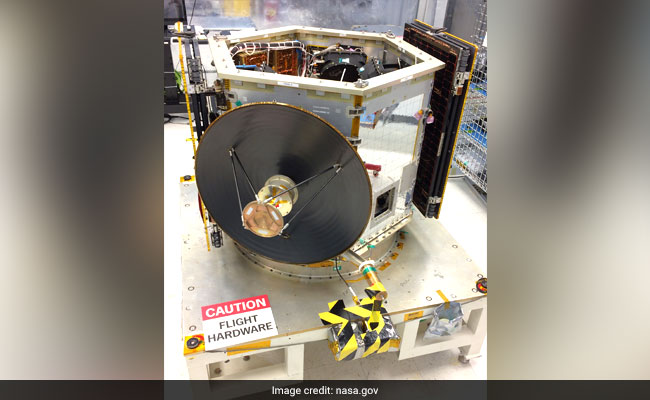
The launch was rescheduled for 6:51 p.m.
EDT (2251 GMT) on Wednesday.CAPE CANAVERAL, Fla.: An 11th-hour technical glitch prompted SpaceX to postpone its planned launch on Monday of a new NASA space telescope designed to detect worlds beyond our solar system, delaying for at least 48 hours a quest to expand astronomers' known inventory of so-called exoplanets.The Transit Exoplanet Survey Satellite, or TESS, had been due for lift-off aboard a Falcon 9 rocket from the Cape Canaveral Air Force Station in Florida at 6:32 p.m.
EDT (2232 GMT), but Space X halted the countdown a little more than two hours before launch time.Space Exploration Technologies, as billionaire entrepreneur Elon Musk's private launch service is formerly known, said on Twitter that the blast-off was scrubbed for the day due to unspecified problems in the rocket's guidance control system.The launch was rescheduled for 6:51 p.m.
EDT (2251 GMT) on Wednesday.The two-year, $337 million TESS mission is designed to build on the work of its predecessor, the Kepler space telescope, which discovered the bulk of some 3,700 exoplanets documented by astronomers during the past 20 years and is about to run out of fuel.NASA expects to pinpoint thousands more previously unknown worlds, perhaps hundreds of them Earth-sized or "super-Earth"-sized -- no larger than twice as big as our home planet.Those are believed the most likely to feature rocky surfaces or oceans, and are thus considered the best candidates for life to evolve, as opposed to gas giants like Jupiter or Neptune.Astronomers said they hope TESS will ultimately help catalogue at least 100 more rocky exoplanets for further study in what has become one of astronomy's newest fields of exploration.Roughly the size of a refrigerator with solar-panel wings and equipped with four special cameras, TESS will take about 60 days to reach a highly elliptical, first-of-a-kind orbit looping it between Earth and the moon every two and a half weeks.Like Kepler, TESS will use a detection method called transit photometry, which looks for periodic, repetitive dips in the visible light from stars caused by planets passing, or transiting, in front of them.
Thomson Reuters 2018(This story has not been edited by staff and is auto-generated from a syndicated feed.)

 7
7






